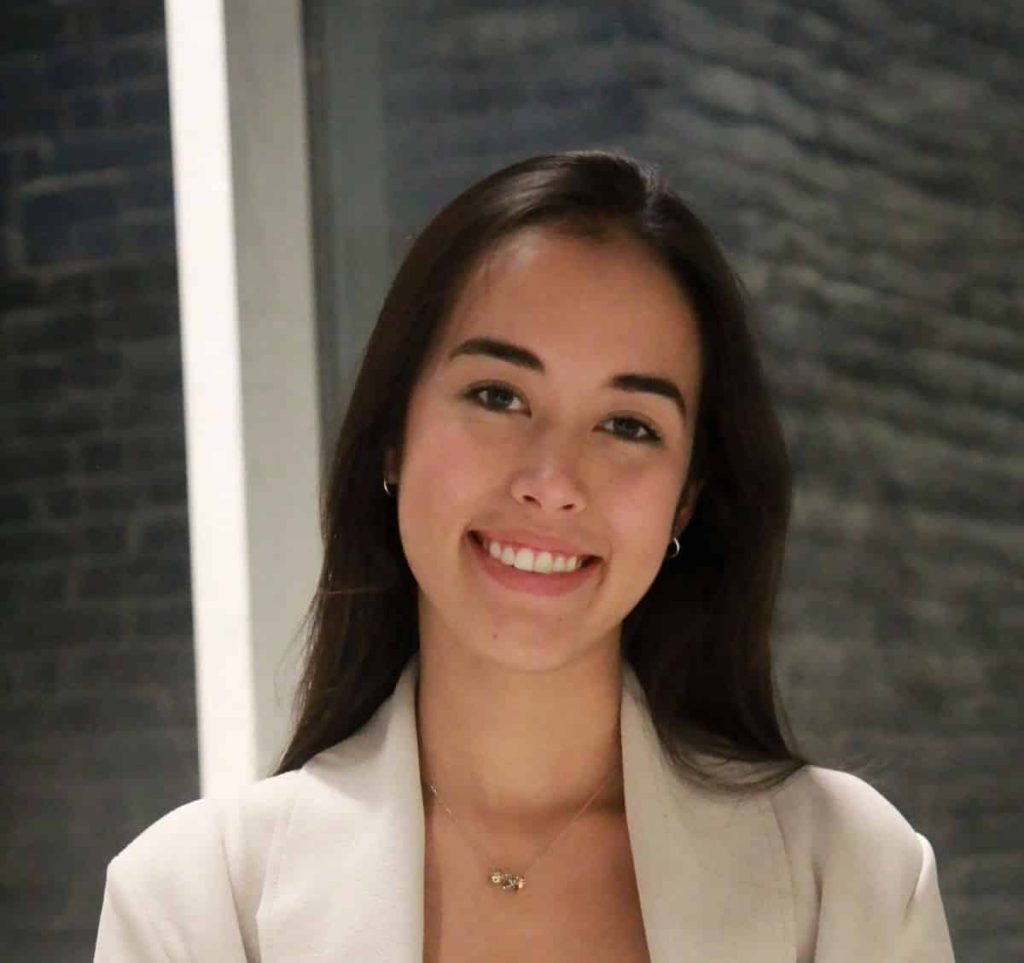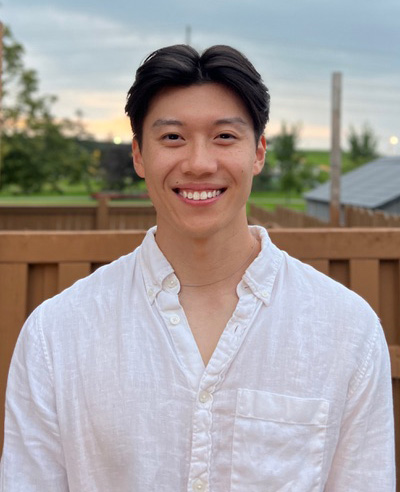Breast Cancer Society of Canada Written Blog Post Questionnaire 2022: Monique Morin
1. Please tell us a little bit about yourself (i.e. name, current degree program/department, supervisor/lab, previous education/experience etc.).
My name is Monique Morin, and I am currently a second-year Masters of Science (MSc) student in the Pathology and Laboratory Medicine Department at Western University under the co-supervision of Dr. Brackstone and Dr. Burton. I completed my honours BSc in Anatomy and Cell Biology with a minor in French at McGill University.
2. Why is the TBCRU Studentship Award important to you, and how does it advance your research?
I am very grateful and honoured to be part of the TBCRU Studentship Program. It has provided funding support that allows me to work on research I find very meaningful and impactful. It has also given me the opportunity to connect with other students conducting breast cancer research and gain more expertise in the different angles we are trying to tackle the prevention and treatment of metastatic breast cancer. Through the TBCRU Studentship, I have become more involved in the Breast Cancer Society of Canada and finding ways to support those impacted by breast cancer beyond my own research project.
3. What is the objective of your research project and what problem(s) you hope to solve?
My research project is focused on using probiotics to modify the microbiome (the group of microorganisms) found within breast tissue to reduce the risk of developing breast cancer.
4. In a few lines, please describe your research project.
Changes to the normal microbiome have been associated with multiple types of cancer, such as stomach, colon, and lung cancers. Recently, it has also been shown that the bacteria populations found in the breast tissue of breast cancer patients is different from those found in healthy breast tissue. My project focuses on identifying key aspects of the breast microbiome in women at high risk of developing breast cancer, a group whose microbiome has not yet been studied. In addition, I am investigating whether probiotics can restore the microbiome back to what is found in healthy breast tissue. With the help of amazing volunteer participants, we are investigating how 90 days of probiotic treatment affects the microbiome in women at high-risk of breast cancer.
5. Have there been any changes to or any advancements in your research since your project began?
Currently, I have completed the participant recruitment, sample collection/processing, and all necessary experiments. I am currently working on data analysis and hope to have data-driven conclusions soon that can help further our understanding of the role the breast microbiome plays in breast cancer risk.
6. Have you had an opportunity to present (or publish) your research to your peers or the broader research community? Was it at a national or international meeting or in some other way?
I have participated in two Pathology and Laboratory Medicine Research Days at Western and plan on participating in the London Health Research Day taking place this spring.
7. If you received feedback following your presentation how has it helped you and your research?
One of the great aspects of presenting research to the broader research community is getting a fresh set of eyes and opinions on your research. My expertise is very focused to my project, but it’s very helpful to get comments or questions from people with different areas of expertise that make me consider how my research may be impacted or impact other areas.
8. How will your research be applied in the clinic or in a real-world setting? How will patients benefit from the results of your work?
The findings from my project will be used to power bigger clinical studies in the future aimed at investigating the potential of probiotics for delaying the onset of breast cancer in women at high risk of breast cancer. One day, patients may be able to take certain strains and doses of probiotics to re-balance the breast microbiome, reduce chronic inflammation, and hopefully improve breast cancer outcomes.
9. Tell us about your involvement in the Breast Cancer Society of Canada fundraising events (Dress for the Cause, Mother's Day Walk).
I really enjoy participating in BCSC fundraising events including the Million Steps to Mother’s Day this year! I also enjoy working with the other TBCRU trainees to organize our own trivia night fundraiser for the BCSC last fall.
10. What are your hobbies? What are you currently reading, watching or listening to outside of the lab?
When not reading a million scientific articles on PubMed, I enjoy staying active by running the London trails (with many walk breaks), reading, and trying out different food spots in London!




